“Dear Gardenerd,
How do we know if our seeds are genetically Modified?”
Excellent question! I have answers for you.
The good news is that GMO seeds are widely available to the commercial agriculture industry, but the push to sell them to home gardeners is not yet popular (and most likely not lucrative). The bad news is that farmers growing non-GMO crops for seed are having a harder time isolating themselves from farms that use GMO seed, and GMO contamination via pollination drift is becoming more common. So what can we do?
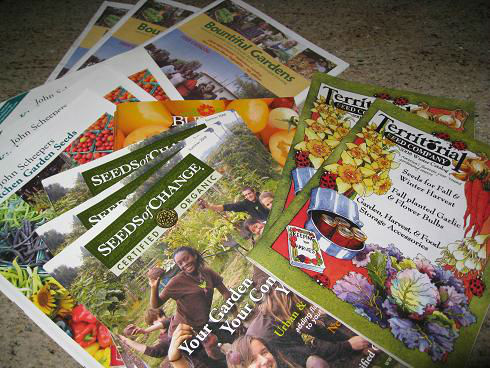
One of these kids is doing his own thing… the one catalog that doesn’t belong in this pile is Burpee.
First – The best line of defense is to make sure the seed companies that you buy from take the Safe Seed Pledge. The Safe Seed Pledge states that the seed company does not knowingly or willingly buy or produce genetically modified seed. Many companies go further to say that they do not believe that GM technology has been tested well enough and feel that GMOs are unsafe until they have been.
What companies take the Safe Seed Pledge? For starters, every seed company on our Links page has been hand-selected because they care about things like this and they all have signed the Pledge (or sell only heirlooms, which can’t be genetically modified or patented). When you get a catalog from a company, the declaration of a commitment to the Safe Seed Pledge is usually located on the inside cover, in the first pages of the catalog, or near the order form. If you don’t see it, call them and ask.
So, I won’t name names, but here’s a little tidbit that a colleague of mine, David King, likes to share with his students: If you buy seeds that aren’t organic, open pollinated or heirlooms, you are most likely buying seed from a company that is owned by Seminis, which is a Monsanto company. They have been buying up patents on most, if not all of the varieties that are grown as nursery stock (yes, those Early Girl and Better Boy tomatoes included). So even if they aren’t GMO seeds, buying them still sends money back to Monsanto.
Now you understand why we at Gardenerd grow only heirloom and open pollinated varieties.
BTW, Some of these companies like Johnny’s and Garden’s Alive are trusted resources for other products, but just be sure to question them if you’re ordering seeds.
The Final Word: The only way to know that you aren’t buying GM seed is to buy organic, heirloom or open pollinated seed from companies who take the Safe Seed Pledge. Better yet, save your own seed, or join a seed library like SLOLA in Los Angeles.
Thanks for writing in; I hope this helps!
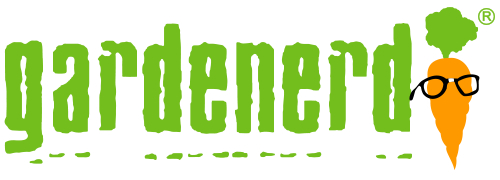
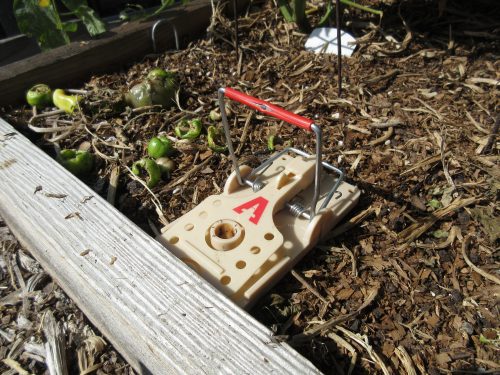
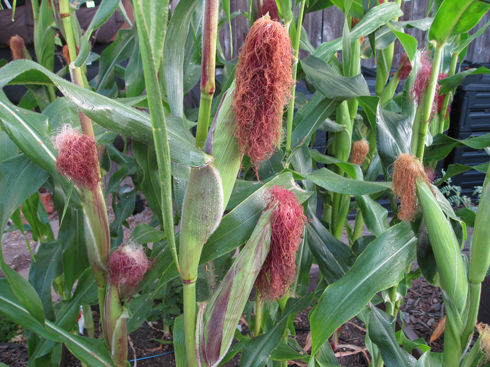
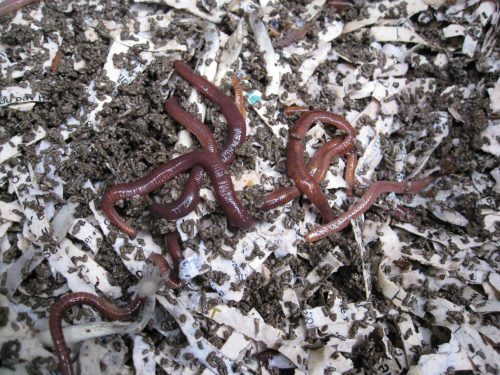
Hi there,
Seeds for generations is a great small family-owned business that would make a great addition to the list you provided.
We’ll check them out, Marissa. Thanks for the suggestion.
I’ve been trying to start an organic gardening but it’s hard to find them in my region most of the companies that sell the seeds are from “Monsanto” can I get a list of sites you recommended for good seed quality? I will appreciate that.
Brigid, as of this writing, there are no genetically engineered seeds available to the home gardener. But we completely agree that it’s important to support seed companies that take the Safe Seed Pledge. You’ll find our favorite seed companies (all of whom take the Safe Seed Pledge) on the Gardenerd Links page and in the Appendix of Gardening for Geeks.
Thank you for the tip on buying non GMO, organic and open polinated seeds.